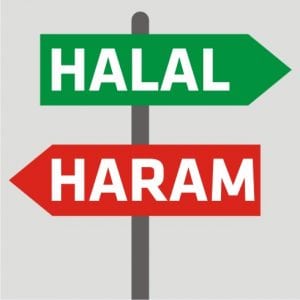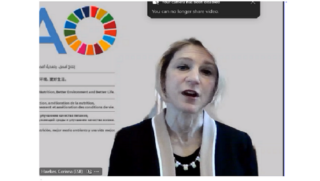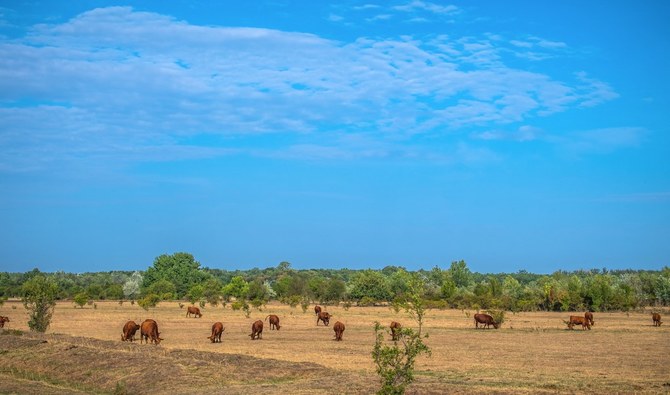But, sometimes the suggestions, assume by big data mining, causes one to conclude garbage in, garbage out.
From UK’s The Guardian, European counter-terror plan involves blanket collection of passengers’ data, January 28, 2015:
“The European Commission plan to be published on Wednesday would require 42 separate pieces of information on every passenger flying in and out of Europe, including their bank card details, home address and meal preferences such as halal, to be stored on a central database for up to five years for access by the police and security services.”
Thus, those ordering halal food while travelling into/out of Europe could be now be “food profiled” for secondary security screening or possible worse (not given halal food while in detention). Some interesting consequences come to the forefront of the mind.
There are the “halal foodies” events in places like London, attracting thousands of Muslims. Will they now just attract those residing in UK as others may stay away?
What about all the halal food manufacturers in Europe, especially those selling to the food-importing Gulf countries or have contracts with the airlines, like British Airways or Virgin Atlantic? Will “follow the halal” impact on international commerce?
Is this, halal food profiling, within similar context of racial-profiling Jews (during Nazi regime) and blacks (civil rights movement)?
Obviously, there are brilliant people working for security agencies, but one wonders what the rationale was for this deep-dive thinking here and is it a slippery slope?
This will affect the major airlines from the Muslim countries like UAE (Emirates and Etihad), Qatar (Qatar Airways), Saudi Arabia (Saudi Arabia Airlines), Oman (Omar Air), Egypt (Egypt Air), Bangladesh (Biman), Malaysia (MAS),Brunei (Royal Brunei), and so, and carriers from US (American, Delta) and India (Air India).
Has any extremist articulated his desire for pre-ordering halal meals on the above-mentioned airlines from the Muslim world? Maybe there is some validity to the theory that the last meal of these extremist be a halal one (but who certified it)?
Now, what if these extremists ordered kosher or vegetarian or did not eat (fasting, packed their lunch/dinner or bought at the fast-food outlet (after security) before boarding)? What if they inquired about halal wine, Lussory (from Lootah Premium Foods), which was recently announced out of Dubai? Would that throw off the scent of halal food profiling?
What about fare class? It would seem that the extremists are more inclined to be economy passengers (9/11 perpetrators, shoe bomber and underwear bomber) than business or first class. Are there budget considerations for extremists? But, may be they can upgrade with their frequent flier mileage.
What if the extremists used Islamic credit, charge or debit cards to purchase the ticket, car and hotel reservation?
What if they had current and savings account at Islamic banks? What if they liquidated their Islamic equity funds and used the proceeds to buy the ticket? What if they purchased Takaful (insurance) coverage, for, say, life, for their European trip?
It would seem the above-mentioned would fit nicely with demanding halal meal plan on the plane.
What if it’s, say, a 15-year-old child travelling alone whose meal was pre-ordered by the parent/guardian? Is this a case for amber alert?
What about those returning home (European city) from an Islamic finance or halal industry conference in, say, Dubai or Malaysia? What about an Islamic finance conference in London, say, like the Euromoney Islamic finance events, where delegates register with an Islamic credit/charge card? Would that raise the halal red-profiling flag?
What about halal food industry conferences like Halal Expo Europe in April, 2015? And what about those companies that win halal food awards?
What about expat non-Muslims living in the Muslim countries, with bank accounts and cards from an Islamic bank, returning home to European city? They may be inclined to order halal food, like mutton biryani, on the plane because of the newly acquired taste?
Furthermore, what will halal certification bodies and scholars have to say about food profiling?
Does this mean the government/state accepted certification body authenticity? So, the separation of church and state violated?
Finally, in theory, what if 1% of the nearly two billion Muslims wanted to travel to Europe for, say, see the halal documentaries at the Cannes Film festival, how would that unfold?
“To halal or not to halal” – that is no longer the question on the table!
* This is the personal opinion of the writer or publication and does not necessarily represent the views of The Malaysian Insider.




